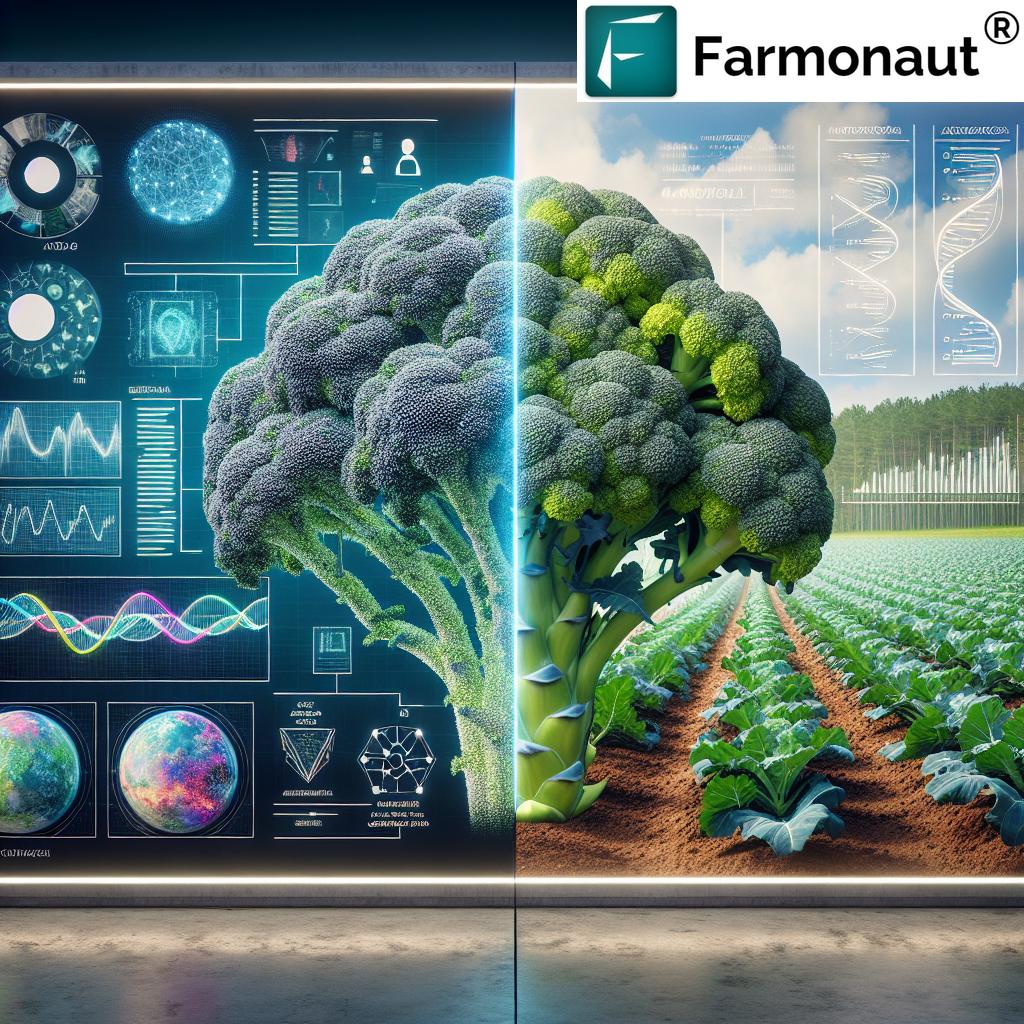Agricultural Pump Systems Auburn & Dairy Waste Solutions: Advancements Powering Sustainable Farming in 2025
“Auburn farms using advanced pump systems reported up to 30% water savings in 2025 agricultural operations.”
“Dairy waste solutions in Auburn increased crop productivity by 18% in fields utilizing innovative management systems by 2025.”
Table of Contents
- Introduction
- Auburn’s Innovative Role in Agricultural Technology
- Agricultural Pump Systems Auburn: Efficiencies and Innovations
- Smart Irrigation Technology in 2025
- IoT, Renewable Energy, and Advanced Control Mechanisms
- 2025 Comparative Benefits Table: Pumps & Waste Solutions
- Auburn Dairy Waste Systems: Resource Recovery & Sustainability
- Turning Dairy Waste Into Valuable Resources
- The Synergy of Pump and Dairy Waste Systems
- Farmonaut’s Role: Integrating Satellite Tech for Optimized Farming
- Future Prospects and Recommendations
- FAQ: Agricultural Pump Systems Auburn & Dairy Waste Solutions
- Conclusion
Introduction: Auburn’s Drive Towards Advanced Agriculture Systems in 2025
Auburn, known throughout the region for its rich agricultural heritage, is now at the forefront of a new era—one where agricultural pump systems Auburn and auburn dairy waste systems are revolutionizing agriculture systems. As 2025 unfolds, integration of innovative solutions is empowering farmers, boosting productivity, and firmly establishing sustainability as a core value across Auburn’s farms and communities.
This article explores current advancements in agricultural pump systems Auburn and auburn dairy waste systems, emphasizing their pivotal role in shaping sustainable farming for the future.
Auburn’s Innovative Role in Agricultural Technology
Auburn has emerged as a hub for advanced agriculture systems, continuously addressing unique regional challenges through technological solutions. The region‘s farmers and communities rely heavily on the integration of modern pump systems and efficient dairy waste management to optimize water use, maintain soil health, and increase overall farm productivity.
- Advanced pump systems provide reliable irrigation mechanisms adaptable to fluctuating weather and soil conditions.
- Dairy waste systems convert waste into renewable energy and organic fertilizers, ensuring environmental compliance and resource efficiency.
- Both systems align with Auburn’s commitment to sustainability, cost control, and higher agricultural productivity.
Agricultural Pump Systems Auburn: Efficiencies and Innovations
Irrigation and water management remain critical factors for successful production in agriculture systems. In Auburn, agricultural pump systems are now smarter, more energy-efficient, and increasingly environmentally friendly.
Smart Irrigation Technology in 2025
The integration of Internet of Things (IoT) has enabled precision control over irrigation:
- Real-time monitoring: IoT sensors measure soil moisture, weather data, and water flow, enabling data-driven decisions for irrigation schedules. This results in significantly reducing water wastage and cutting unnecessary costs.
- Remote adjustments: Farmers can remotely control pumps and adjust schedules, aligning water use with actual demand instead of relying on static routines.
- Variable Frequency Drives (VFDs): Modern pumps with VFDs optimize energy consumption by matching pump speed with the required water flow and pressure. Aligning consumption with demand reduces operational costs and carbon footprints.
Widespread Adoption of Solar Agricultural Pump Systems Auburn
Solar-powered pump systems are seeing widespread adoption throughout Auburn, driven by the dual imperative to reduce carbon footprints and cut operational costs. These systems are:
- Equipped with battery storage: Continual water supply is ensured, even during grid outages and at night, supporting resilience for Auburn farms.
- Ideal for off-grid areas: Small and medium-scale farmers benefit equally, improving crop resilience during drought conditions.
By using renewable energy, Auburn’s agricultural pump systems become smarter and more environmentally friendly, furthering sustainable farming practices.
IoT, Renewable Energy, and Control Mechanisms in Auburn Pump Systems
Enabling higher productivity and sustainability: In 2025, agricultural pump systems Auburn frequently incorporate IoT sensors and AI-powered analytics. Smart controllers receive data from weather forecasts, soil moisture sensors, and plant health indicators, automatically adjusting irrigation rates to match crop needs. This not only improves crop productivity but also reduces costs and wastage.
- Adaptive Schedules: Modern technology enables pumps to operate at optimal intervals, reducing continuous running and saving energy.
- Monitoring & Alerts: If anomalies in pressure or flow are detected, these systems notify farmers in real time, preventing costly issues and maintaining system health.
- Integration with Weather Data: Irrigation is now aligned with up-to-date meteorological information, making water use even more efficient and responsive to Auburn’s changing climate.
How Farmonaut Satellite & AI Solutions Support Water Management
By using Farmonaut’s satellite-driven advisory systems, farmers can remotely monitor soil moisture, NDVI (vegetation health), and field conditions, augmenting precision in irrigation scheduling and input management. Our real-time solutions harness AI-powered predictive analytics to recommend optimal water use and crop care—key for sustainable farming in Auburn.
Download the Farmonaut app for streamlined, satellite-driven monitoring and smart irrigation insights tailored for Auburn’s crops.
Comparative Benefits Table: Agricultural Pump Systems Auburn & Dairy Waste Solutions (2025)
| System/Technology | Est. Water Savings (%) | Reduction in Waste Output (%) | Boost in Crop Yield (%) | Sustainability Impact |
|---|---|---|---|---|
| Solar-Powered Pump Systems | 25–35% | — | 10–18% | ♻ Reduces carbon footprint, uses renewable energy |
| Automated Irrigation Controls (IoT+VFD) | 28–40% | — | 12–22% | ♼ Maximizes water use efficiency |
| Anaerobic Digesters (Dairy Waste) | — | 60–75% | 8–18% | ♽ Produces energy, reduces methane |
| Biofiltration Systems | 10–15% | 55–65% | 6–10% | ☕ Improves nutrient cycling, reduces pollution |
These technological advancements not only advance Auburn’s push for sustainable farming but also deliver measurable, quantifiable improvements in water savings, waste management, and agricultural productivity for 2025 and beyond.
Auburn Dairy Waste Systems: Resource Recovery & Sustainability
The dairy sector is a critical component in Auburn’s agriculture systems. Effective dairy waste management—from collection and processing to nutrient recycling and utility generation—is crucial for environmental stewardship and economic resilience.
- Anaerobic digesters are extensively used to break down manure, creating biogas for renewable energy and leaving behind nutrient-rich substances for organic fertilizers.
- Nutrient recovery systems capture nitrogen, phosphorus, and potassium, which can then be blended into custom fertilizers, improving soil health.
- Automated sensors track waste processing, enabling real-time monitoring and guaranteeing compliance with Auburn’s strict environmental regulations.
By turning dairy waste into a resource, Auburn’s farming sector not only reduces pollution and costs but actively contributes to the circular economy, minimizing input needs while maximizing outputs.
Turning Dairy Waste Into Valuable Resources in Auburn
The process of converting manure and organic residues into biogas, organic fertilizers, and compost is at the forefront of agricultural innovation in Auburn. Advanced waste treatment systems are essential for:
- Producing clean energy: Methane generated from anaerobic digestion offsets energy costs and promotes energy self-sufficiency.
- Generating organic fertilizers: Digestate left after biogas production is a valuable input, improving soil fertility and reducing dependency on chemical fertilizers.
- Enhancing environmental compliance: Controlled processing of nutrient-rich waste prevents run-off and keeps Auburn’s water bodies clean.
This approach is helping Auburn maintain its leadership in sustainable agricultural practices for 2025, with true synergy between waste solutions and crop productivity.
The Synergy of Pump and Dairy Waste Systems in Shaping Sustainable Farming
Integrating smart pumps with advanced dairy waste solutions demonstrates Auburn’s commitment to a holistic agricultural model:
- Efficient pump systems ensure crops receive the right amount of water, promoting optimal growth and soil health.
- Processed waste produces renewable energy and organic fertilizers, increasing sustainability and reducing reliance on synthetic inputs.
- Sensor integration and data-driven management make it possible to balance energy use, input cycles, and output quality, leading to higher productivity and lower costs.
Auburn’s model is now regarded as a benchmark for regions seeking to future-proof their agriculture systems using cutting-edge technology and sustainable practices.
“Auburn farms using advanced pump systems reported up to 30% water savings in 2025 agricultural operations.”
“Dairy waste solutions in Auburn increased crop productivity by 18% in fields utilizing innovative management systems by 2025.”
Want to Integrate Satellite Insights into Your Operations?
- Farmonaut API: Add real-time satellite crop monitoring, water management, and waste tracking to your custom platforms and mobile apps.
- API Developer Documentation: For detailed integration guides and quick start tutorials on satellite data for agriculture, irrigation management, and sustainable practices.
For farming businesses aiming for greater scale and efficiency, we recommend exploring large-scale farm management solutions from Farmonaut. These web systems help manage input planning, monitor water balance, schedule irrigation, and assess the overall health of your fields, perfectly tailored for Auburn-style advanced agriculture systems.
Supply chain traceability and carbon footprint tracking are now vital for Auburn farmers, processors, and community organizations focused on sustainability:
- Farmonaut Traceability Solutions: Ensure food safety, authenticity, and transparency for Auburn’s agricultural products using blockchain technology.
- Carbon Footprinting Tools: Monitor and reduce your environmental impact with precise carbon accounting tools—essential for stewardship in 2025.
Fleet management is now a crucial part of Auburn’s advanced agriculture systems. Reduce operational costs and improve resource utilization with Farmonaut’s fleet management solutions, which track vehicles, machinery, and equipment for better logistics and environmental efficiency.
Financial resilience is key in an evolving agricultural sector. Farmonaut’s crop loan and insurance verification tools use satellite imagery to provide accurate crop data for loan approval and insurance claims, supporting Auburn’s farmers as they scale sustainable operations.
Farmonaut’s Role: Integrating Satellite Tech for Optimized Farming in Auburn
As we move forward into 2025, satellite technology and AI-driven systems are essential for monitoring and optimizing water, soil health, waste processing, and resource allocation on Auburn’s farms.
- Satellite Monitoring: Our platform enables real-time tracking of vegetation health, soil moisture, and field productivity—empowering Auburn farmers to improve irrigation planning and adapt to climate variabilities.
- Environmental Impact Tracking: With features like carbon footprint monitoring, users across Auburn’s agri-sector can track emissions and adjust practices for better sustainability.
- Blockchain-Backed Traceability: Farmonaut’s blockchain system is designed for food supply chain transparency, from farm to market—a rising demand in Auburn and globally.
- Fleet & Resource Management: Businesses leverage integrated satellite data for efficient logistics and fleet tracking, reducing costs and supporting sustainable expansion.
By adopting Farmonaut’s advanced satellite-driven solutions, Auburn’s farmers and agribusinesses are ensuring their operations are future-proofed and data-driven.
Future Prospects and Recommendations for Auburn Agriculture Systems
Looking ahead, the prospects for Auburn’s agricultural sector remain bright as it continues integrating advanced pump systems and dairy waste solutions—shaping both the present and future of sustainable farming across the region.
- AI-driven Predictive Analytics: Leveraging big data for even more accurate irrigation scheduling and waste processing will become standard in Auburn, maximizing both yields and environmental stewardship.
- Collaborative Innovation: Continued efforts between farmers, local institutions, and technology providers are required to overcome challenges in scaling and cost management.
- Integrated Compliance & Reporting: Meeting and surpassing regulatory thresholds for emissions, water usage, and waste discharge will protect Auburn’s agricultural legacy for decades to come.
- Ongoing Training and Adoption: Ensuring all Auburn communities have access to new tech, training, and resources is vital for inclusive progress and the expansion of these innovations beyond large-scale farms.
FAQ: Agricultural Pump Systems Auburn & Dairy Waste Solutions
-
What makes Auburn’s agricultural pump systems unique in 2025?
Auburn’s agricultural pump systems stand apart due to their integration of IoT controls, variable frequency drives (VFDs), and widespread adoption of solar-powered, environmentally friendly pumps. These enable real-time monitoring, reduce energy and water use, and deliver greater resilience against climate change. -
How do Auburn dairy waste systems benefit the community and environment?
Auburn’s advanced dairy waste systems convert manure into valuable biogas and nutrient-rich organic fertilizers, reducing pollution and operational costs while promoting soil health and renewable energy use. -
Can small-scale farmers in Auburn access these technologies?
Yes, both the new generation of solar-powered pumps and modular waste systems are designed for scalability. Digital tools like Farmonaut’s satellite monitoring support farms of any size, providing real-time insights and affordable solutions. -
What role does real-time data play in Auburn’s farm management?
Real-time data enables Auburn’s farmers to make evidence-based decisions on irrigation, nutrient management, and waste processing—maximizing resource efficiency and productivity in an unpredictable environment. -
How do these systems help reduce environmental impact?
By optimizing water and energy use, reducing methane and nutrient waste output, and powering circular agriculture with organic fertilizers and biogas, Auburn’s systems significantly lower emissions and preserve local ecosystems. -
How can I get started with Farmonaut on my Auburn farm?
Download the Farmonaut app (web, Android, iOS) to unlock satellite-powered monitoring, smart alerts, AI-based irrigation advice, and more for your farm in Auburn.
Conclusion: Auburn’s Blueprint for Sustainable, Efficient, and Resilient Farming (2025 & Beyond)
In summary, Auburn’s agricultural pump systems and dairy waste management solutions are driving sustainability, optimizing water, and boosting crop productivity on a regional and national scale. Through the strategic application of advanced technology—from solar pumps and IoT automation to biogas digesters and nutrient recovery systems—Auburn’s farming community is setting the standard for what efficient, productive, and environmentally responsible agriculture looks like in 2025.
As the region continues to evolve, embracing technological integration and data-driven practices will be vital for achieving higher productivity and sustainability. Auburn’s experience offers a roadmap to other agricultural hubs striving for similar success—and, with continuous innovation, the future of farming in Auburn remains bright.
Check out all the Farmonaut solutions for real-time monitoring, AI-based advisory, blockchain-backed traceability, and resource management. These empower Auburn’s farmers and businesses to lead the way in sustainable agriculture.












